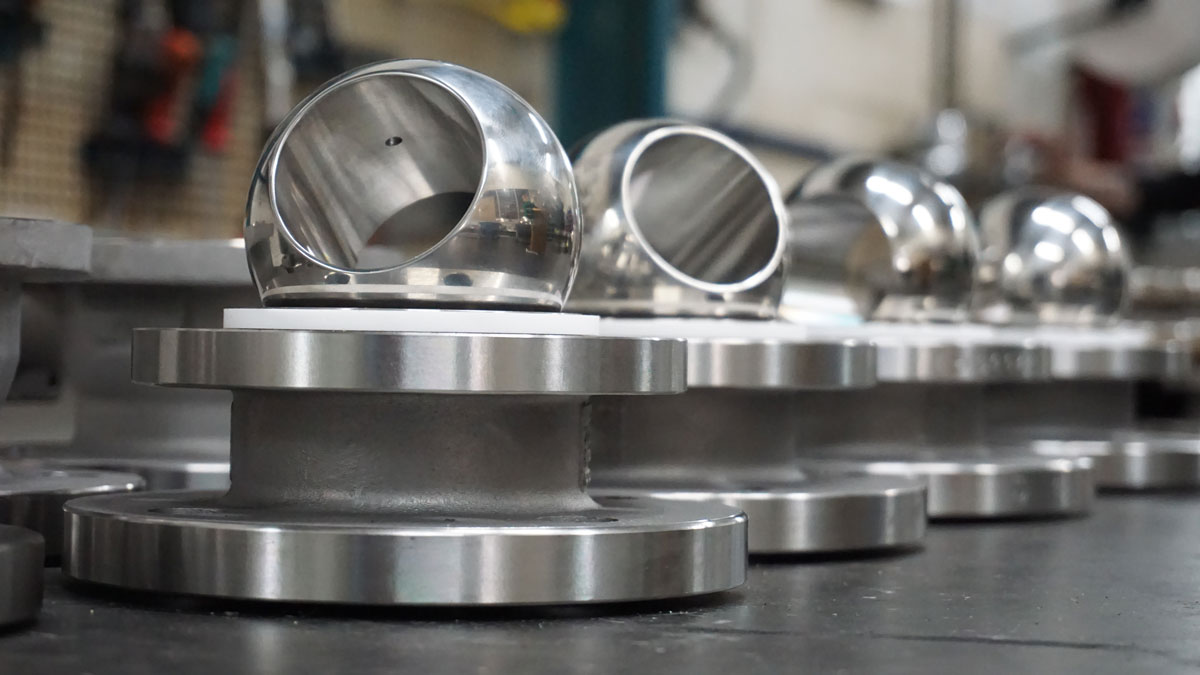How to choose the right ball valves for each sector
Ball valves play a crucial role in regulating fluid flow across various systems, ranging from household water lines to industrial pipelines.
These industrial valves come in different types, sizes, and materials, offering versatility to cater to a wide range of applications. Their suitability depends on factors like pressure ratings, temperature tolerances, and specialized features.
Thanks to their precision and reliability make them indispensable in industries such as water and sewage processing, oil and gas, and chemical manufacturing.
So, what factors should you consider when selecting the perfect ball valve?
In order to make the right choice it’s necessary to understand the fundamental design and the basic functions of ball valves. These are some factors that must be taken into consideration:
- Ball valve types and features: there are many types, materials and sizes, and are meticulously crafted to suit specific applications based on their pressure ratings, temperature capabilities, and specific features. Delving into key components such as body material, stem size, seal type, and handle configuration is pivotal during the decision-making process.
- Ball valve materials: when choosing a ball valve is crucial to access the material used and to consider its compatibility with the application’s environment. Materials commonly used include metals like bronze, and stainless steel, as well as plastics such as PVC, polypropylene, and CPVC.
- Ball valve size: ball valves come in a lot of sizes and shapes, it’s vital to ensure compatibility with the existing piping and equipment for optimal flow.
- Ball valve pressure ratings: prioritizing the assessment of a valve’s pressure ratings is essential when making a selection. These valves are engineered to endure diverse pressures and temperatures, catering to applications with varying operating pressures. It’s crucial to select a ball valve with a maximum pressure rating that surpasses the system’s requirements.
- Flow requirements: when assessing a system’s flow needs, factors like fluid flow rate, pressure drop, and leakage must be carefully considered. Ball valves offer precise fluid flow control, ideal for applications demanding accuracy. Selecting a ball valve entails ensuring it aligns with the system’s flow requirements, alongside providing sufficient pressure and temperature resistance.
- Specialized features: many ball valves offer specialized features like regulation with V-Port, tank bottom design, cavity filler option, segmented ball, wafer design or locking devices, enhancing safety. To search for ball valves with specialized features is essential to pinpointing the optimal choice for your specific application. At FHT Valves, we offer a custom manufacturing service, so we adapt to the need suggested by the customer.
- Installation, maintenance, and repair needs: you should always take into account the installation, maintenance and repair needs. It is important to evaluate how difficult the installation will be, what type of maintenance might be needed over the time, and if there are any other special repair considerations when choosing the right ball valve for your application.
Other factors to consider when choosing a ball valve include the material density and adherence to international manufacturing standards and certificates by your supplier.
Understanding these aspects and features is essential before making your decision. With over 25 years of experience in the sector, FHT Valves, besides offering a wide range of products, we work with 100% European manufacturing and in compliance with DIN & ANSI standards.

